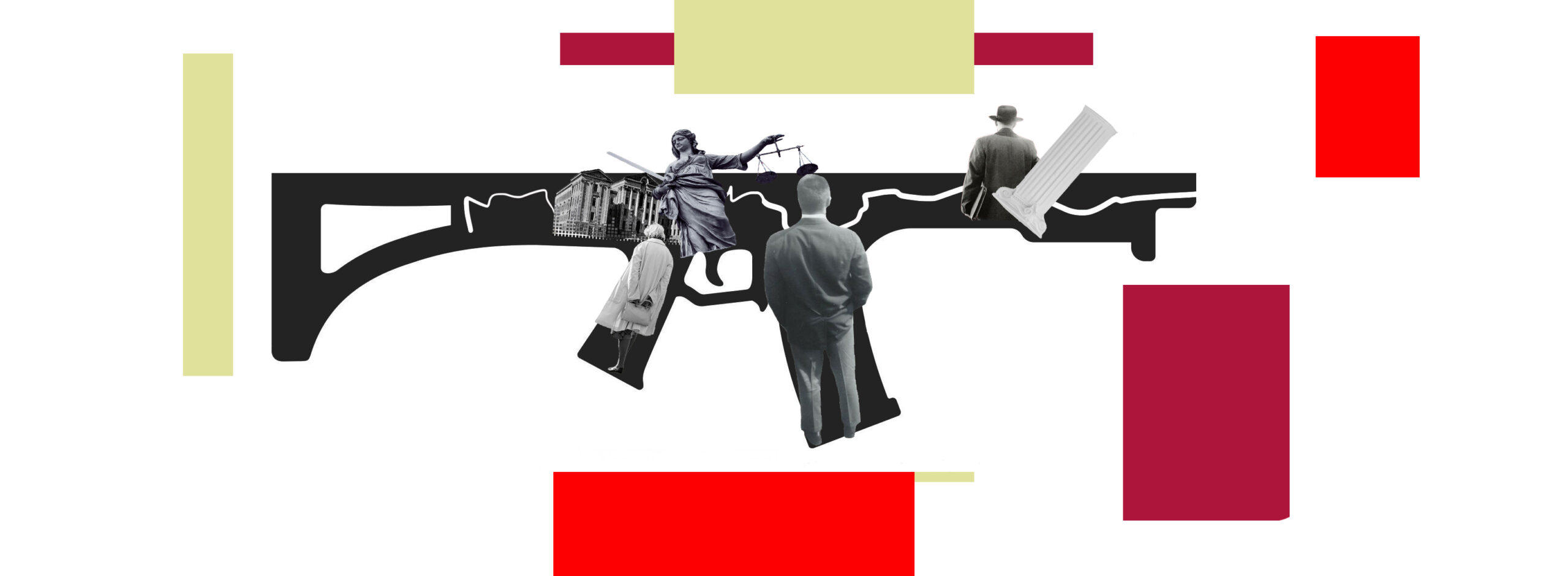
Since Armenia’s independence in 1991, the Artsakh issue has been one of the key pillars of Armenia’s national security policy. It has been a driving force to rally national unity and a starting point in shaping our worldview. Following the 2020 Artsakh War, however, Armenia has been reminiscent of an organism with a weakened immune system, suffering from the flare up of latent viruses that it had been managing for years, and vulnerable to new ones that continue to surface.
The severe consequences of the 44-day war have significantly changed Armenia’s security environment, further complicating the prospect of a pro-Armenian resolution to the Nagorno-Karabakh conflict, posing new challenges to Armenia’s territorial integrity, independence and sovereignty, as well as leading to a crisis in Armenia’s pre-war security architecture.
On November 18, 2020, Prime Minister Nikol Pashinyan, in a Facebook post, outlined 15 points meant to serve as a roadmap to overcome the post-war situation. Point #8 of the roadmap envisaged adopting and implementing an Armed Forces Reform Program. Following the early parliamentary election in June 2021, the new Government Programme (2021-2026) was approved. The “Defense and Armed Forces Reform” subsection of the “Security and Foreign Policy” section of the Programme stipulates that the Government aims to carry out continuous reforms in the defense sector to ensure the Armed Forces can fulfill its constitutional mission: ensuring the defense, security, territorial integrity and inviolability of the borders of the Republic of Armenia. On February 9, 2022, during the National Assembly Question Period, Minister of Defense Suren Papikyan declared that an Armed Forces Reform Concept had been prepared by the end of 2021, but its contents were not entirely acceptable to him, and that efforts were still ongoing. He stressed, “I repeat once more for everyone—our opposition partners, as well as partners with some experience in this field—we are open to listening to criticism and suggestions.”
An objective question arises: how will the voice of civil society be heard on the provisions of the concept being developed? Considering that civil society is one of the most important components of the democratization process of any state, what will its contribution be in this process of national significance? Civil society has considerable potential to counteract the power of the state by persistently reminding political leaders of the imperative of taking into account numerous competing interests and demands when making decisions on state policy.
Therefore, state bodies of the Republic of Armenia should encourage the active participation of civil society in the modernization process of the Armed Forces, as a manifestation of transparency in the management of the security system and a guarantee of the state’s pursuit of sustainable democracy. Public debates, institutionally planned and organized working discussions and other similar events aimed at ensuring the involvement of academic institutions, analytic centers, human rights NGOs and other stakeholders in the security realm throughout the various stages of the Armed Forces Reform process can serve this purpose.
The imperative to further foster civil and democratic oversight mechanisms of Armenia’s security sector is also conditioned by the destructive behavior of the parliamentary opposition. By restricting their agenda to the ousting of the current authorities, they are wasting their professional and political resources and depriving the debate of alternative ideological programs—endangering the efficiency and entire philosophy of the parliamentary system of governance. The opposition is even boycotting the activities of the committee of inquiry tasked with investigating the 2020 Artsakh War. In order to outline the risks that the parliamentary opposition is taking with its approach, we need to remember that the amended 2015 Constitution does not provide a strong institute of the President who is directly elected by the people and actually forms the Government. Therefore, in the classical sense, the executive power is no longer a self-sufficient factor in Armenia, but completely depends on the political will of the parliamentary majority. In this context, political competition should naturally unfold between the parliamentary majority and the minority. Meanwhile, by thwarting the important mission of shaping alternative ideological and political agendas, the parliamentary opposition is in fact refusing to influence political decisions vital to Armenia, handing over full discretion to one political party. Given this dangerous feature of post-war Armenia, strange as it may seem, a strong civil society needs to partly assume the opposition’s mission. For their part, the acting authorities should encourage—as much as possible—the active involvement of civil society in the processes of reviewing elements of national security policy, generating alternative political discourses, and democratic and parliamentary oversight of the security sector.
The role of civil society in the process of strengthening democratic and parliamentary oversight of the security sector comes in several forms. The first is feeding independent analysis and information about the security sector to the media and the National Assembly. The second is to bring important security issues of public interest to the political agenda, which should be combined with educating the public and generating and encouraging alternative discourses in the public sphere. The third is to provide systematic feedback on decisions related to the National Security Policy and the quality of its implementation. And the last, but not least, is to monitor respect for the rule of law and human rights in the security sector, by providing recommendations and criticism. The executive and legislative branches of government, in their turn, should initiate and encourage cooperation frameworks aimed at fostering effective participation of civil society in the processes of civil and democratic oversight of the security sector.
According to the 2020 National Security Strategy of the Republic of Armenia, strengthening democratic institutions and the rule of law is emphasized as one of the main guarantees of Armenia’s national security. Moreover, Article 14 of the Constitution stipulates: “The Armed Forces of the Republic of Armenia… are under civilian supervision.” Meanwhile, keeping independent experts, think tanks, analytical and educational institutions, as well as other interested members of civil society from involvement in the process of reform of the Armed Forces, which started following the 2020 Artsakh War, already contains elements of a breakdown in civilian and democratic oversight. After all, the effectiveness of civil and democratic oversight is highly conditioned by the level of democratic governance, when the parliamentary and judicial systems, strong civil society and independent media monitor the activities of the Armed Forces, thus ensuring their accountability to both the population and the government. This process, in turn, contributes to the transparency of decisions and actions concerning the Armed Forces. Moreover, democratic oversight of the Armed Forces is also a precondition that promotes the rule of law and human rights in the Armed Forces, as well as ensuring that the policies and resources of the state are in line with the policies and capabilities of the Armed Forces.
Armed conflicts and large-scale wars highlight the need to modernize the Armed Forces. At the same time, they create favorable conditions to limit transparent governance of the security sector. This is mostly conditioned by the incompatibility between the military, political, diplomatic and financial resources of the State and the expectations of the public in the post-war environment. Here, especially, civil and democratic oversight of the security sector can help bridge the expectations and needs of the public and the policies and capabilities of the State. Making sure the voice of civil society is heard in the process of the Armed Forces modernization will first of all promote a reconsideration of the relations between the Armed Forces and the public, strengthening confidence, ensuring transparency and human rights in the Armed Forces, thus upgrading its combat capability.
The modernization/reform program of the Armed Forces of the Republic of Armenia should be based on the main security documents—Armenia’s National Security Strategy and Military Doctrine—which are important components of the country’s national security policy. Yet, these main security documents were developed and adopted before the 2020 Artsakh War and need to be updated. In view of all this, today more than ever, it is necessary to launch a comprehensive review of national security policy, which envisages a revision and reinterpretation of the current National Security Strategy and Military Doctrine documents. The comprehensive and in-depth Armed Forces reform process should be part of the process of reviewing the entire national security policy.
In conclusion, the process of reviewing Armenia’s national security policy and modernizing the Armed Forces should be based not only on the approaches and views of the government and other state bodies, but also on the active cross-section of civil society. In this context, the authorities should make the utmost effort not only to strengthen the continuous improvement of existing mechanisms of civil and democratic oversight of Armenia’s Armed Forces, but also to take steps to introduce new mechanisms for the sake of reinforcing a transparent and accountable security sector, effective governance and a well-considered re-launch of the security system.
Also read
Plotting an Armenian Defense Innovation Strategy
Securing a technological edge is critical to the competitiveness of the Armenian Armed Forces. Yet reforming the military’s technology ecosystem in isolation will not resolve the country’s festering security woes.
Read moreIf You Seek Peace, Prepare for War: Armenia’s Security Dilemma and the Need for a New Defense Doctrine
Armenia’s security infrastructure requires a robust defense doctrine, expansive reforms, rearticulation of geopolitical and geostrategic realities, closing the gap in power disparity with regional actors and competent institutional structures.
Read moreMilitary Expenditures and the Economy: Behind the War of Weapons
Azerbaijan increased its military spending by 17% in 2020; this was among the largest annual increases in Eastern Europe and Eurasia. Ani Avetisyan breaks down the numbers of the military expenditures of both Armenia and Azerbaijan.
Read moreOn the Current Role of the Armed Forces and Civil Society in the Political Situation in Armenia
Armenia’s Constitution states that the Armed Forces must ensure the security, defense and territorial integrity of Armenia, as well as the inviolability of its borders. Intervention by the army in political processes is a violation of the principle of political neutrality and civilian control over them.
Read more




